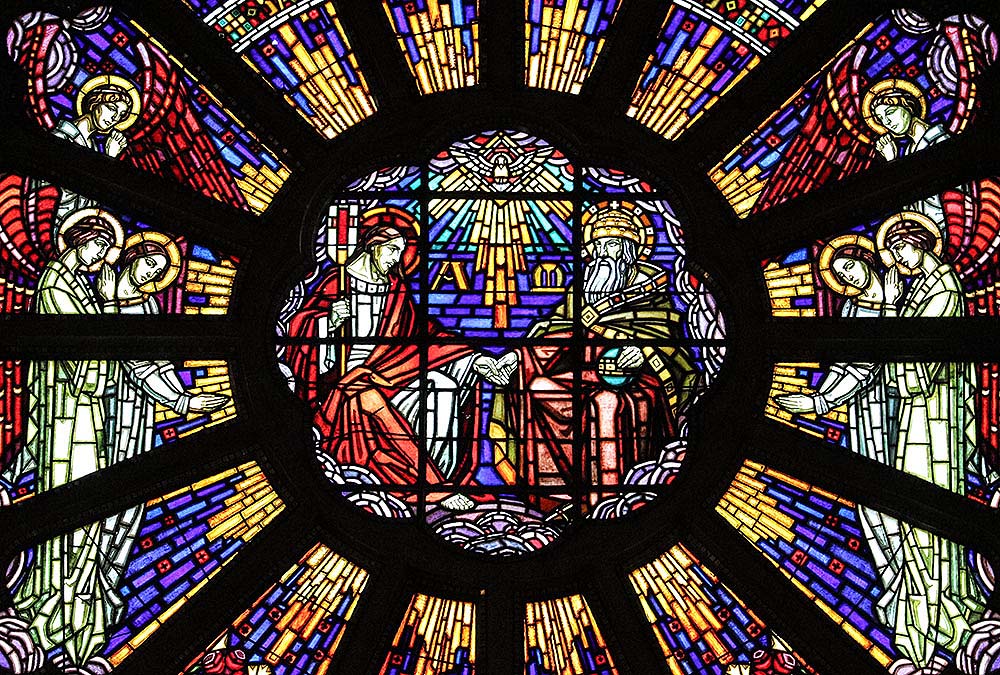<div style="text-align: center;"><div style="margin-bottom: 10px; padding-bottom: 10px; border-bottom: 1px dotted #ccc;" class="full_width_image"><img style="width: 624px; max-width: 100%;" src="https://www.ncronline.org/files/styles/email_newsletter_full_width/publ… style="color: #04619d; text-decoration: none;" href="
<div style="text-align: center;"><div style="max-width: 400px; margin: 0 auto;"><a href="https://www.ncronline.org/vatican/francis-comic-strip/francis-comic-str… style="max-width: 100%;" src="https://www.ncronline.org/files/styles/email_news
<h2><a style="color: #04619d; text-decoration: none;" href="https://www.ncronline.org/opinion/guest-voices/earth-day-bruno-latour-p… Earth Day, Bruno Latour points to our role in environmental crisis </a></h2><div style="font-weight: bold; font-size: 15px; font-family: Arial, sans-serif;" class="byline">by Daniel P.
<h1>Sunday Resources</h1><div style="font-size: 19px; font-family: 'Georgia', serif;"><p>National Catholic Reporter offers these resources in advance as a complimentary service to planners and preachers.</p>
<div style="text-align: center;"><div style="margin-bottom: 10px; padding-bottom: 10px; border-bottom: 1px dotted #ccc;" class="full_width_image"><img style="width: 624px; max-width: 100%;" src="https://www.ncronline.org/files/styles/email_newsletter_full_width/publ… style="color: #04619d; text-decoration: none;"
Evan Bednarz is a freelance writer currently based in El Paso, Texas, whose recent work focuses on the intersecting narratives of global migration and American Catholicism.

(Wikimedia Commons/Lepocheux)
From where do we draw our images of God? Did you actually try drawing some as a child?
Our God image will have a lot to do with our image of ourselves, others and life itself.
When Moses talks to his people about their God, he presents a variety of images. He talks about God as speaking from the fire, wreaking terror on their enemies, taking his people as a personal possession and freeing them from oppression.
All of those words describe God's action, not God's self. Psalm 33 speaks of the Lord, avoiding the use of the name God revealed to Moses because mere human beings cannot be worthy to pronounce God's name. With that reverence, the psalm describes God as a powerful creator, just, kind, trustworthy and ever mindful of those who seek divine mercy.
These are but a few of the multiple images of God we encounter in the Hebrew Scriptures. In today's first reading, we see signs of Israel's developing spirituality and theology. In the best cases, spirituality, the experience of relationship with God, comes before theology. Theology then attempts to express the meaning of that experience.
There was a time when Israel believed in their god as the best of many. Slowly, they came to believe in one God, the one who chose them. Every stage of this development had effects on their relationships with God and one another.
As we recognize this variety of images, we realize that the Bible does not define dogma, rather, it preserves the legacy of humanity's ever-growing understanding of the God who made us in the divine image and seeks us out in love.
Our earliest ancestors in Christian faith grappled with the immense challenge of trying to understand who Jesus was and what he revealed about God and the world. Throughout Jesus' ministry, the disciples were accustomed to hearing Jesus speak of God as his Father, the source of his life, the one whose mission he was carrying out and whose reign he was revealing. They saw him as a prophet — perhaps the Messiah.
His resurrection cast a vastly new light on all their thinking, a light so bright that they could hardly comprehend what it meant.
Because Paul's letter to the Romans was written before any of our four Gospels, it gives us a glimpse of how Christian thinking was developing before Matthew, Mark, Luke and John wrote their testimonies.
Advertisement
Just before his famous explanation of the world's evolving toward fullness in God (8:19-29), Paul talked about how our relationship to Christ changes all our other relationships. By saying, "you received a spirit of adoption," Paul puts us on a relationship par with Christ. We can call upon God as our Father in the same way as Jesus did because God considers us "joint heirs" with him.
This implies that we share in his relationship with God, and if with God, then with the rest of creation as well.
These Scriptures lead us toward the mystery we celebrate today with the Solemnity of the Most Holy Trinity. Jesus revealed that God's love, the only relationship God desires with creation, draws us into union with God and all that God loves.
Although Paul is not proposing the concept of God as Trinity, in this short passage, he does relate to Christ, the Father and the Spirit. Experience precedes theologizing. Paul is talking about the community's experience of relationship with God — finding the right words to explain that relationship is a process that's been going on for two millennia.
Jesus commissioned his disciples to share their faith in God, knowing that mission is a spiraling experience.
This leads us to consider the end of Matthew's Gospel. Matthew portrays Jesus as saying two key things before he departs. First, he tells the disciples to make and baptize disciples in the name of the Father, Son and Spirit. Like what Paul said to the Romans, this reflects the community's insight into Jesus, what he taught about God as Father, and their own experience of the Spirit of God. Matthew's intention here was not to teach theology but to propel disciples into mission.
From Moses to Matthew, today's Scriptures are a call to contemplation and action. Theology helps us understand, but no amount of theory can give us "the correct" or "orthodox" image of God. God is beyond our comprehension, and if we are growing in faith, our awareness of God will grow and change.
Jesus commissioned his disciples to share their faith in God, knowing that mission is a spiraling experience: As we share our faith, we grow in it; as we grow, we are ever more impelled to share our faith.
A community that lives mission will be an ever-growing and changing image of God in our world. In the end, that's what really matters.

(Unsplash/Leo Rivas)
Our Liturgy of the Word for the Vigil of Pentecost begins by restating the Genesis myth of the Fall in a different context. This time, instead of an uppity couple ruining the tranquility of a garden, Genesis 11 portrays the paradise of a united humanity that knows no divisions of geography, language or anything else. Then they decide that they'll "make a name" for themselves. (Before whom? They were one people — until some took the lead, expecting others to obey.)
Competition sprang up among them along with inequality and resistance to diversity. More than that, they cultivated the assumption that they could improve on God's plans.
Using vocabulary reminiscent of Israel's slave labor in Egypt (Exodus 1:14), we hear that they built a tower, molding bricks and using bitumen for mortar, all in an attempt to control life and attain access to the heavens on their own power. The result was babbling Babel.
They created a situation in which they could not trust one another. Striving to outdo each other, they could no longer speak the one language of a united people.
Like the story of the Garden of Eden and the murder of Abel, this account gives another explanation of the origins of evil and the seemingly invincible divisions among Earth's people. Jesus' mission was to heal these divisions, revealing the union with God and neighbor that humanity was created to enjoy.
Responding to this predicament, Jesus describes the salvation he offers as living water, the source of life. Conjuring memories of the encounter between Jesus and the woman at the well (John 4), this image describes God's ongoing offer to give life, to let divine life flow through us.
First, Jesus cries out, "Let anyone who thirsts come to me and drink!"
In a land where water was scarcer than an oft-limited food, this represented a very concrete promise of life. The image of living water complements the image of the vine and branches, inviting us to contemplate how Christ can be our sustenance and refreshment, inviting us into the kind of union that happens as drops of water come together and begin to flow as one.
The image of living water invites us to contemplate how Christ can be our sustenance and refreshment, invites us into the kind of union that happens as drops of water come together and begin to flow as one.
Jesus promises that those who abide in him will become like him, rivers of living water for others. (A river doesn't flow for itself, but to support life everywhere it goes.) Here we see a variation on a theme of Jesus' promise that his followers will dwell in him and do his works and even more. (See John 14:12, 15:5-17.)
None of our readings for the liturgy of the Vigil of Pentecost repeat Luke's account in Acts about the descent of the Holy Spirit. Instead, preparing for that, they amplify and deepen our reflection on our participation in the Spirit. We see this most clearly in this evening's selection from Paul's letter to the Romans.
In Romans 8, Paul reminds us that the gift of the Spirit is an evolving reality. We who experience its "first fruits" still experience birth pangs, longing and struggling to allow new life to flow from us. In Paul's image, we are both giving birth and waiting for the unfathomable identity with Christ that Paul describes as "adoption" by God.
Advertisement
Paul puts great emphasis on the idea that the Spirit in us is an experience of grace and hope, not an ambition or a project. Hope in the Spirit puts us in a stance of vulnerable trust, believing that more is on the horizon than we could ever imagine. Thus, even our prayer becomes a work of the Spirit within us, a wordless, imageless longing for what only God can provide, the living water that is life for all in Christ.
The liturgy for the Vigil of Pentecost invites us into hope. Unlike the miracle of the tongues we will hear the next day, this is an invitation to dream, as theologian John Haught would say, to "lean on the future," to allow God's future to beckon us forth.
This is the evolutionary hope Paul offers, not for what we see, but that for which we are willing to wait with patience and endurance.
This feast invites us to walk in humility so that God can continue to create through and for us. It reminds us that the Christian journey is not a return to a perfect past, but an experience of wayfaring with Abraham into the risky, mysterious future that can come about only when we trust God more than our own hopes and plans.
Who can imagine what it will be like as living water continues to flow through us?
